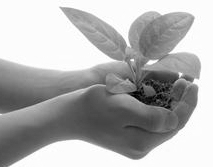RevMeg
In the Shadow of the Bomb
August 11, 2017I was sitting with two beloved twenty year olds at dinner recently, catching up with one another’s lives. Their stressful work lives, bad bosses, another week gone by. Then I asked, “So this threat of nuclear war hanging over our heads—how are you internalizing that?”
Both of them shrugged and kept eating. “In a way, it would be easier,” one of them said. “We’d all just die. I mean, it would suck, but it would be over . . . ”
This person always leans towards cynicism, so I looked to the other one, with her sunny side of the street personality, for a reality check. She was matter-of-factly nodding agreement. “Sure,” she said. “It sounds horrible but in a way much easier than the long slow fight for life that we’re going to have with global climate change anyway.”
We went on with dinner. Life returned to mundane topics. But this conversation keeps replaying in my mind. What hideous alternatives my generation is handing off to the young ones. I spent my own twenties in the Reagan years, furious at the weapons build-up and games playing by the world leaders. So outraged by the death-centered-theology (End times are GOOD!) that I entered seminary to focus on nurturing and sharing life-affirming beliefs instead.
My friends and I demonstrated at nuclear weapons facilities, spent months living at women’s peace camps, in New York and at home in Minnesota, camped out by military bases and weapon-producing factories. We held massive peace marches. Thousands of us committed civil disobedience at the local Honeywell plant that made cluster bombs. I spent seven years with a small group of women in an “empowerment group,” systematically working through the exercises Joanna Macy introduced in her book, “Despair and Empowerment in the Nuclear Age,” and offering them up to the wider community.
I, too, thought we might all perish. The threat permeated our daily lives, our media. Reading statistics about millions of people dying was mind-numbing and unreal then, and it’s unreal now. I read a post that said before someone could push the nuclear codes, they should have to stab one living person to death and watch them die. That makes it real, takes away the video-game quality.
This morning, finally, I had a good cry. What opened my floodgates wasn’t statistics or speculations. It was a story about a particular act of cruelty, leveled against particular and vulnerable people, that someone told me about.
I felt better after I cried. It reminded me of the one lesson I learned from the Reagan years: While my friends and I—people of race and class privilege—were so focused on the scariest possibility of all, mass annihilation, specific communities were being annihilated all around us. There was a war on poor people. Mass incarceration really cranked up. The war on drugs was a strategic way to assault people of color. So, if I had those years to do over, I would focus more on the particular, the assaults already taking place, doing what I could to stop them, however tiny the effect of my actions might be, rather than fearing the ultimate destruction of the earth and her people. I don’t have those years to live over, but that’s what I’ll be continue to do now.
Don’t get me wrong, if there are massive peace marches, I’ll be there again. But meanwhile, you’ll find me affecting the tiny bits of change I can, where I live. The rest is too big to comprehend.
To the young ones, I can only say, I sorry. I am so sorry that this bleakness is yours to inherit. May you find the support and strength to fight in all the brave ways you can. And may you find joy and fun and love in the fight itself, because heaven knows we did. The friends I made then are still my fast friends, and I wouldn’t change that fact for anything. The creativity and courage of young adults have brought every kind of positive change the world has ever seen, and we all need you now.
Keep fighting!
From Your Minister
July 1, 2017Podcast: Download (Duration: 6:35 — 6.0MB)
Subscribe: More
 When I was 19 I fell in love with Plato’s Socratic Dialogues. Read more →
When I was 19 I fell in love with Plato’s Socratic Dialogues. Read more →
From Your Minister
June 1, 2017Podcast: Download (Duration: 5:07 — 4.7MB)
Subscribe: More
 “I love seeing that you’re entertaining earth spirits in the yard,” the man said to me, bending his head so that his tall frame could fit through my front door. Read more →
“I love seeing that you’re entertaining earth spirits in the yard,” the man said to me, bending his head so that his tall frame could fit through my front door. Read more →
From Your Minister
May 1, 2017Podcast: Download (Duration: 6:12 — 5.7MB)
Subscribe: More
The word economics comes from a Greek word meaning household management, something I’ve done a lot of in my life. So you’d think I’d have a knack for it. Read more →
From Your Minister
April 1, 2017Podcast: Download (Duration: 5:37 — 5.2MB)
Subscribe: More
Years ago, a therapist told me that people would rather feel absolutely anything besides helplessness. Read more →
UU White Supremacy
March 29, 2017Many of you who are involved with social media know that over the past few days, a painful conversation has been taking place about the white supremacy which is evident at the national UUA headquarters and indeed throughout our religious movement.
As leaders entrusted with the care of the Church of the Larger Fellowship (CLF), we have been witnessing the conversation carefully and wondering what, if anything, we need to say. Ultimately, we feel the need to speak out to our members and friends, and particularly to the people of color who have joined the CLF as a last resort in Unitarian Universalism, after experiencing marginalization or being discounted in bricks and mortar congregations. We do not want you to feel marginalized or discounted at CLF, and yet we harbor no illusions that we are made of different DNA than other historic UU institutions.
And so we’ll say three things: First, we applaud the breaking of silences and the direct communication which is taking place now, particularly by people of color. We know that there is risk in breaking silence, and we see these voices as voices of love. We pray that this moment will provide opportunities and motivation for necessary changes to come in all of the institutions that make up our religious movement, including CLF.
Second, we understand that it is the responsibility of white Unitarian Universalists in all of our institutions to examine our practices and see their impact, to listen without getting stuck in defensiveness as people of color point out where we fail to be conscious in our work, and to keep moving towards justice, knowing that we will do all of this imperfectly.
Third, we witness and grieve the pain that people of color in our movement have carried historically and continue to carry because of the lack of consciousness and courage of white people. Religious institutions should be places of healing and transformation, not one more place to need healing from.
With deep awareness of our own imperfections as individuals and as a congregation, we vow to keep trying, keep listening, keep evolving.
Rev. Meg Riley
Senior Minister
Arif Mamdani
Incoming Board Chair
From Your Minister
February 1, 2017Podcast: Download (Duration: 6:02 — 3.0MB)
Subscribe: More
 I’ve always thought that God the Father had a really sick relationship with Mother Earth. Read more →
I’ve always thought that God the Father had a really sick relationship with Mother Earth. Read more →
From Your Minister
January 1, 2017Podcast: Download (Duration: 6:10 — 5.6MB)
Subscribe: More
Here’s how I wish change happened:
Change says to The Universe, Hey, I’d like to happen now! And The Universe replies, with ease and joy, That’s terrific! Happen, then! Read more →
From Your Minister
December 1, 2016Podcast: Download (Duration: 6:12 — 5.7MB)
Subscribe: More
 We are so often waiting for something to happen—waiting for appointments, waiting on hold for customer assistance, waiting in line, waiting for approval, waiting for an apology, waiting for a specific date or event! Read more →
We are so often waiting for something to happen—waiting for appointments, waiting on hold for customer assistance, waiting in line, waiting for approval, waiting for an apology, waiting for a specific date or event! Read more →
From Your Minister
November 1, 2016Podcast: Download (Duration: 6:22 — 5.8MB)
Subscribe: More
 As I reflect on this month’s theme of prayer, scraps of poems and songs I love dance before me. Read more →
As I reflect on this month’s theme of prayer, scraps of poems and songs I love dance before me. Read more →
Renew Your Membership
We invite you to join your fellow CLFers to renew your CLF membership and stewardship of the CLF for another year.
Support the CLF
Can you give $5 or more to sustain the ministries of the Church of the Larger Fellowship?
If preferred, you can text amount to give to 84-321
Newsletter Signup
About
Quest for Meaning is a program of the Church of the Larger Fellowship (CLF).
As a Unitarian Universalist congregation with no geographical boundary, the CLF creates global spiritual community, rooted in profound love, which cultivates wonder, imagination, and the courage to act.
Contact
Church of the Larger Fellowship Unitarian Universalist (CLFUU)
24 Farnsworth Street
Boston MA 02210



